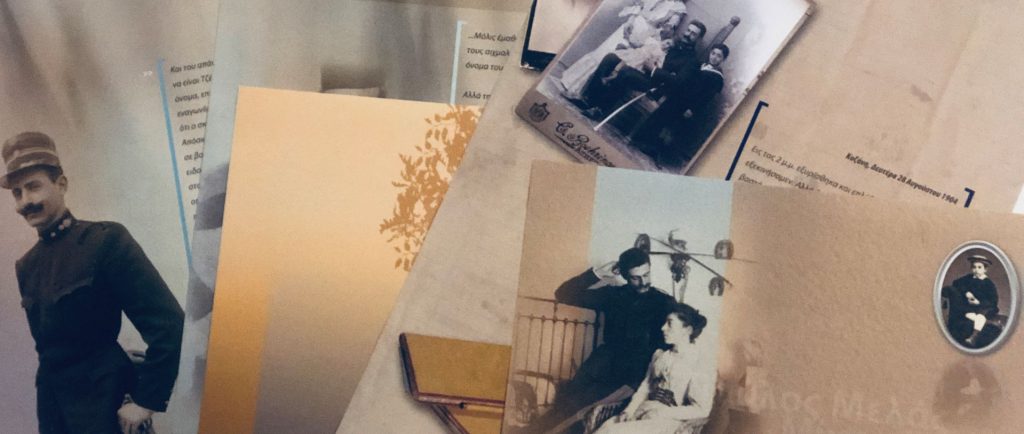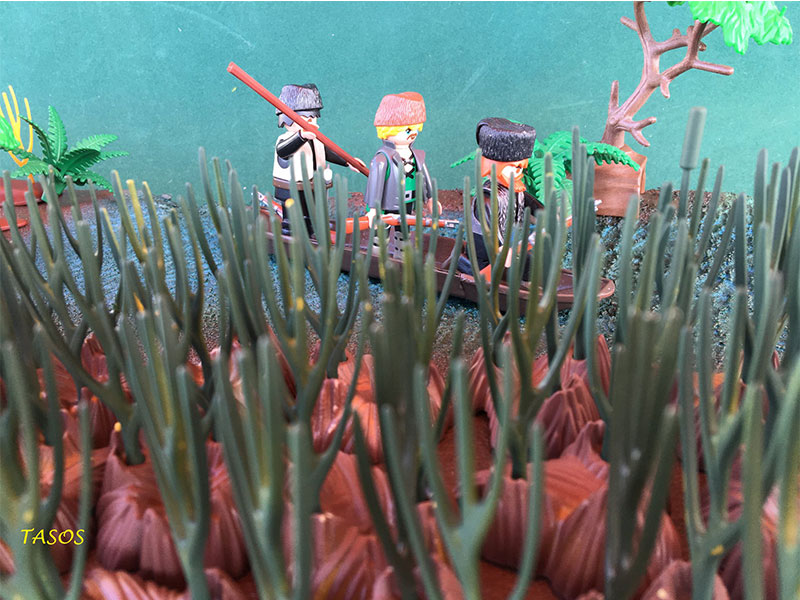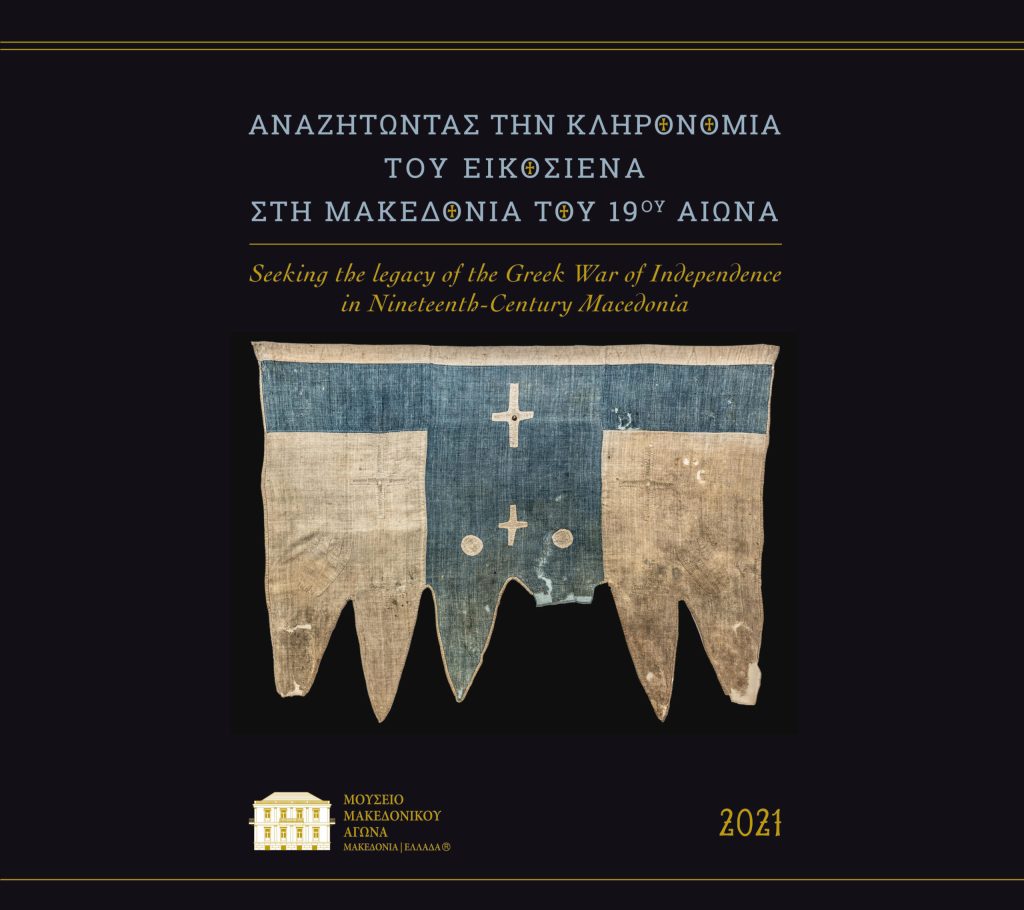Πιλοτικό Πρόγραμμα Εκπαιδευτικής Δράσης IMMA & Διεύθυνση Πρωτοβάθμιας Εκπαίδευσης Δυτικής Θεσσαλονίκης: «Από το Σχολείο στο Μουσείο: ένα δημιουργικό ταξίδι στην Ιστορία της Μακεδονίας»

The educational programme started to be implemented during the academic year 2022 in the context of the IMMA’s anniversary events for the 100 years of the Asia Minor Catastrophe. It is addressed to students of Kindergarten and Primary School. The aim of the programme is to narrate the course of the rehabilitation of the refugees of 1922 at key stations of Thessaloniki, through the collections of museums and private collectors. It combines an educational walk in the memorial sites of Thessaloniki (Agia Sophia Square, the churchyard, sculptures of Pontian Hellenism) with a creative approach to history through Art, Literature and Technology in the halls of the Museum.
Through the experiential walk, students have the opportunity to discover refugee sites and landmarks of the city with monumental value, in an interactive way and through on-site observation. At the same time, they activate their existing knowledge and critical thinking in order to understand the evolution of people’s history through time, to “walk their routes”, as they were shaped by the persecution and the violent movements of populations that followed the events in Smyrna. The children participate in narrative actions, re-enactments, presentations of poems and texts in front of the monuments, as well as in visualizations of historical events related to the settlement of refugees, the fears, anxieties, the pain of uprooting and the hope for a new life in a new homeland.
In the second part of the educational programme, the students are guided through the rooms of the Museum and, with the support of the Museum’s educators and historians, they follow the development of historical events and the course of the Greek populations coming to Thessaloniki. Through the cinematic depiction of the areas and using narratives – testimonies, texts by writers that give a vivid picture of the era and its people, as well as through paintings and public art, the children will understand the historical moment in an experiential way and will be able to evaluate the next day and the management of the trauma. The central theme of the programme is the concept of homeland, as it is formed through the children’s relationship with the place, the language, the family, public art, the actions of the people and their daily habits.
The museum-based, experiential method of approaching history gives the opportunity for younger children to come to the centre of the activities, to creatively and multi-thematically revive the history of their country and to process complex concepts such as human rights, freedom, war, war, refugees, peace and the management of memory. Pupils come into contact with the subject of learning by acting in an attractive cultural environment, scientifically and interdisciplinarily adapted to their needs and interests. They engage individually and in groups in activities involving observations, planning, exercises and games that foster their soft learning skills and historical literacy. They work together to plan and implement joint research activities, interventions, using dialogues, story lines, video projections and visual arts (painting, sculpture, collage). They look for causes, effects contrasts and similarities between that era and today’s reality. They take on roles and initiatives, create texts and compose artistic works.
After the completion of the educational visit to the Museum, the teachers receive rich educational material in digital form with ideas for creative use and production of new, original educational material that will be organized under the supervision of the Museum’s scientific team and the final result will be posted on the Foundation’s renewed website https://imma.edu.gr/ with free access to the educational community and the public in general, in the context of good practices in museum education and the teaching of history to students.
One class (maximum number of 25 students) from each school unit can participate in the project. Interested teachers can register their participation by filling in the relevant form from 17 – 24 January 2024.
Due to the limited number of participants, a strict first-come, first-served order of registration will be observed.
Scientific Supervision – Programme Development: Stavroula Mavrogeni, Professor PA.MAK.- Director of KEMIT IMMA
Programme Coordination: Athina Pavlidou, Philologist-Museologist/Cultural Manager, PhD in Museology, University of the Aegean, Director of IMMA
Documentation by Dr. Konstantinos Papanikolaou, Historian – Research Associate IMMA, Vangelis Kansizoglou, Historian – Research Assistant IMMA
Design of educational activities and materials: Katerina Tzavaras, MSc Educator – Author, IMMA Educational Programmes
Travelling through time on a quill and a… mouse!
5th, 6th Grade Primary School studentsMiddle School students
“Playing and learning in the Swamps of Giannitsa”
Pre-school students
Seeking the legacy of the Greek War of Independence in Nineteenth-Century Macedonia
Παιδιά Νηπιαγωγείου – Δημοτικού – Γυμνασίου – Λυκείου




